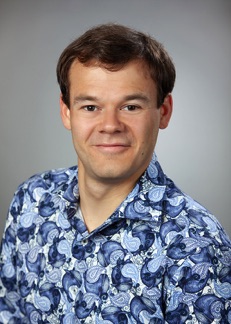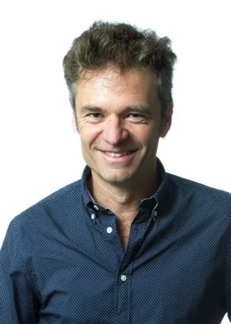

SPAtial Regulation of THERMomorphogenesis in Plants
a GVA-funded Group of Excellence
PROJECT
PARTICIPANTS
EVENTS
RESULTS
DISSEMINATION
CONTACT
HOME
SPATHERM

April 22, 2024
Special Seminar by Prof. Jan De Vries (Georg-August-University Göttingen, Germany)
Inferring the dynamic stress response networks of the earliest land plants
Plant terrestrialization marks the emergence of land plants, which dominate the terrestrial biosphere. Land plants evolved from streptophyte algae, and the earliest land plants had to overcome environmental stressors, characterized by rapid shifts in factors such as light and temperature. Recent advances have established genome data for the closest algal relatives, shedding light on shared stress response genetics. However, the action of these components remains poorly understood. By employing integrated environmental gradient and time-course stress profiling, transcriptomics, and metabolite analyses across divergent streptophytes, we uncovered networks of genes that indicate ancient signal convergence. Shared genetic hubs underscore ancient stress adaptation strategies predating land colonization by over 600 million years. I will discuss our current understanding of the evolutionary history of embryophytic stress response networks, setting the stage for plants' conquest of the terrestrial habitat.
Jan is University Professor for Applied Bioinformatics at the University of Goettingen, Germany. He holds this position since 2022, after having been appointed Junior Professor at the same institution in 2019. Before this, he was a postdoc in the lab of John Archibald at Dalhousie University, Halifax, Canada, where he went on a DFG Research Fellowship. Jan’s research on the evolution of stress responses in the context of plant terrestrialization is supported by an ERC Starting Grant. For this, Jan mainly applies comparative functional genomics on streptophyte algae, focusing on their stress response. Jan did his PhD with Sven Gould and Bill Martin at the Institute of Molecular Evolution, Düsseldorf, in 2016; the topic of his dissertation was plastid evolution and symbiosis. Jan’s work has resulted in 68 publications in peer reviewed journals, 38 of which as first or last author and 26 as corresponding author.
April 8-9, 2025
Prometeo Consortia SPATHERM and Don't Stop Me Flow, funded by Generalitat Valenciana, organized their first joint symposium in Canet d'en Berenguer to explore common interests and exploit complementary expertises. Attendees include not only the members of both consortia, but also a number of researchers working on Plant Development that may participate in future applications.
More info HERE.



September 22, 2025
Special Seminar by Prof. Christian Fankhauser (Université de Lausanne, Switzerland)
Sensing light direction in plants
Phototropism reorients aerial organs towards the light to improve photosynthesis. This response is particularly striking in etiolated seedlings perceiving light for the first time. In Arabidopsis directional light information triggering growth re-orientation is perceived in the hypocotyl. How a light gradient is established across the hypocotyl to initiate phototropism is unclear. We show that intercellular air channels limit light transmittance through various organs in several species. Air channels enhance light scattering in Arabidopsis hypocotyls thereby steepening the light gradient. We identified an embryonically expressed ABC transporter, required for the integrity of a structure surrounding air channels and their presence in seedlings. Following establishment of a phototropin activation gradient, an opposite auxin gradient is formed across the hypocotyl. How these two events are linked is still not understood. Our work on the PKS family suggests that they might be an important link between early phototropin-induced events and the initiation of asymmetric growth.
Christian Fankhauser received his PhD from the University of Lausanne in 1994 after carrying out his thesis at Swiss Institute for Experimental Cancer Research (ISREC) in the laboratory of Dr. Viesturs Simanis. He performed postdoctoral studies with Dr. Marty Yanofsky at UCSD then with Dr. Joanne Chory at The Salk Institute for Biological Studies in San Diego. He became a Swiss National Science Foundation Assistant Professor at the Department of Molecular Biology of the University of Geneva in 2000. He joined the Center for Integrative Genomics in January 2005, where he was appointed Associate Professor. In 2011 he was promoted to Professor. He was elected to the german academy of sciences Leopoldina in 2019 and member of EMBO in 2025. He has made key contributions to the understanding of how light regulates directional growth among other topics.